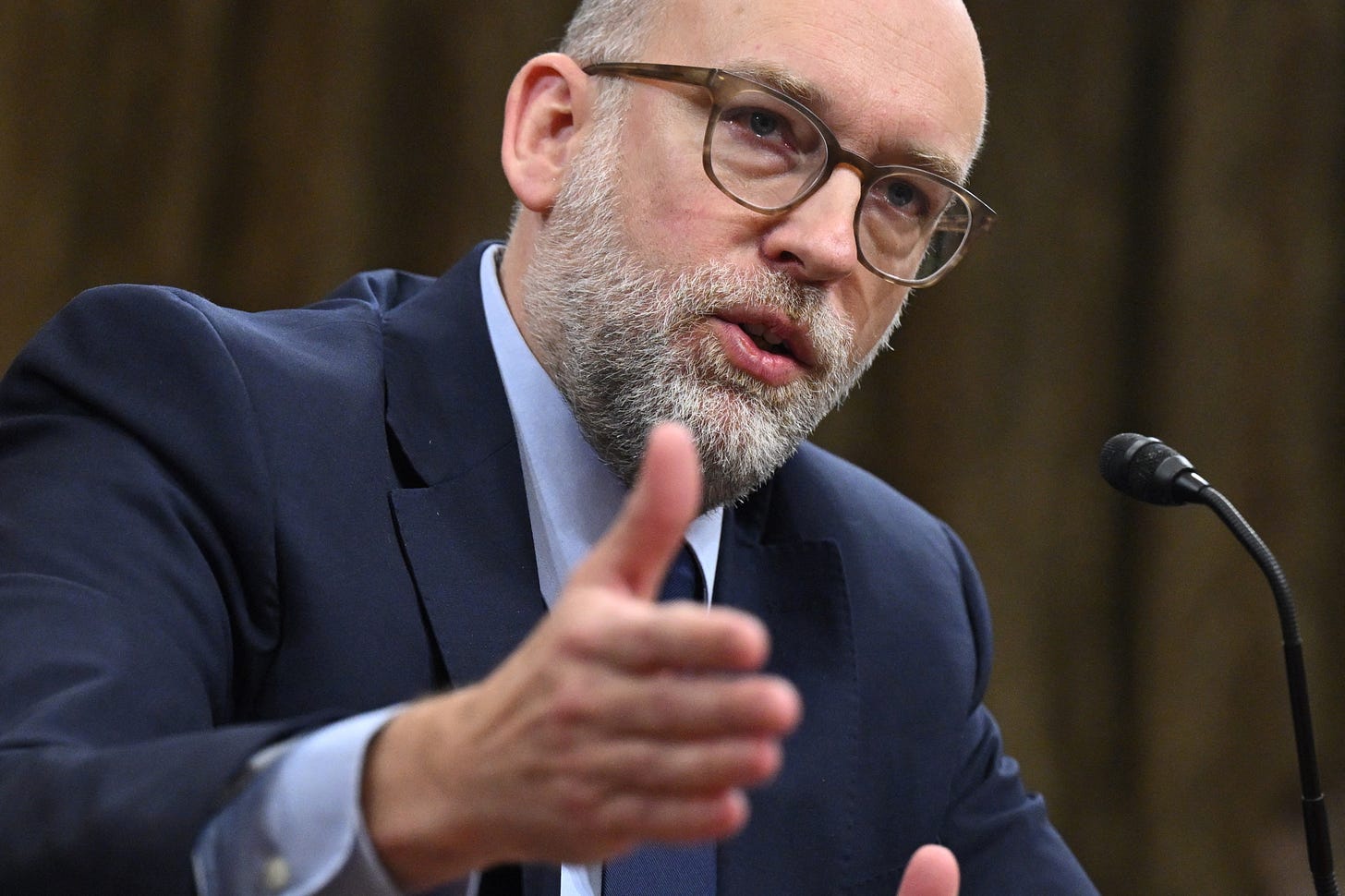Who Is Russell Vought? Probably the Most Important Person in Trump 2.0
My latest Guest Essay in the New York Times

It’s been … an eventful few days in American politics. Next week, I’ll begin assessing it all, trying to gain perspective on where we are and where we might be going. But for now, here’s an essay I wrote for The New York Times about one very important part of the Trump juggernaut. The essay starts like this:
Among President Trump’s opening barrage of executive orders were directives to undo many of President Joe Biden’s actions and to make a sharp break from the way that administration handled immigration. But it is the bucket of orders related to the federal work force and administrative agencies — and his choice to serve as director of the Office of Management and Budget — that could have the greatest long-term impact on the shape of American democracy.
Whether that prospect inspires delight or dread will depend in large part on whether you view the evolution of the federal government over the past century with approval or disgust.
If Russell Vought is confirmed as Office of Management and Budget director, he will continue to enact and accelerate the radical, sweeping agenda he began to implement in that same position during the final two years of the first Trump administration.
From that record and his testimony before a Senate committee last week, as well as the executive orders released this week, it’s clear that he and the administration plan nothing less than a full-scale assault on the regulatory and spending powers of the executive branch, reversing trends that have been underway since the early 20th century.
You can read the whole thing by following this gift link.





A timely and revealing article, Damon; thanks. I posted a response to it in the NY Times comments, slightly edited here:
Russel Vought talks Constitution, but he's really talking monarchy -- as if the Framers' intention was to solve their problem with hereditary monarchs simply by having elected monarchs instead.
Given the size and complexity of the US government now compared with the one in the Framers' time, he knows it's humanly impossible for even the most interested and industrious president to oversee the mass of detailed regulations and guidelines administered and created by today's executive branch.
Instead, in Donald Trump he sees a laissez-faire president who can't be bothered with governing, and a bureaucracy he plans to severely hobble in its ability to monitor and regulate, among other things, industry; financial dealings; public health and education; energy; land and the environment; and, no doubt dear to Mr. Vought's heart, separation of church and state.
Instead of restoring freedom to the people as he claims, Mr. Vought seeks to liberate vested interests from the constraints that prevent them from taking advantage of the people for their own ends. The fox is taking over the henhouse.
“Every modern nation — and certainly a superpower of nearly 350 million people — requires institutions of public administration that regulate aspects of our lives with intelligence and consistency over time. There is no reality in which we could get along without them. Pretending otherwise — or imagining government would work better if its powers were placed in the hands of those who are more narrowly partisan and less broadly knowledgeable than the civil servants we have today — is folly.”
Wonderfully stated, Damon. More than folly, it is infantile and obtuse. It is stunning that we are dealing with adults who don’t know better.
That Vought proudly advertises himself as a Christian Nationalist has me seeking out his definition of the term. There are few ideologies more anathema to modern governance in my view than that one.